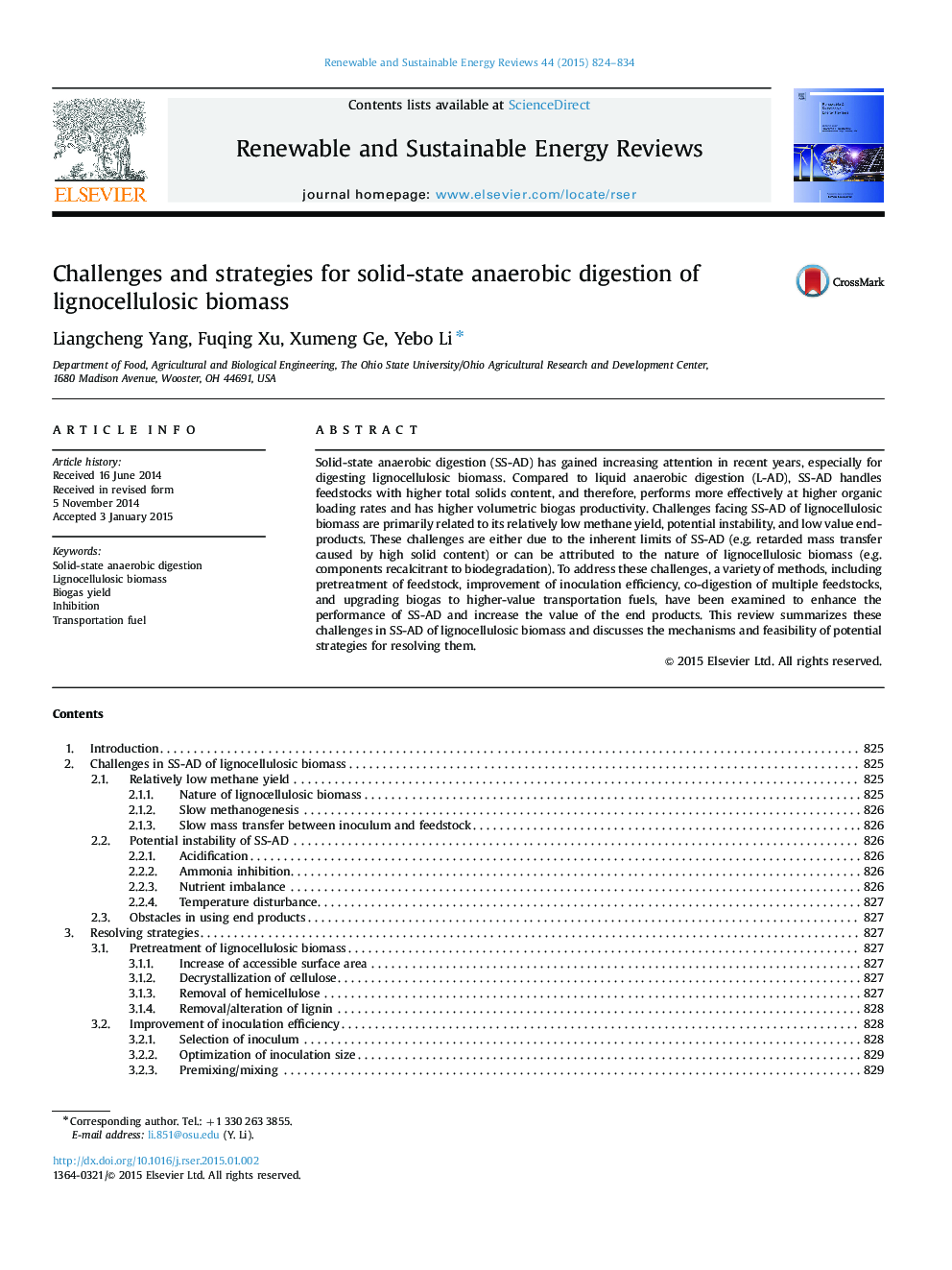| Article ID | Journal | Published Year | Pages | File Type |
|---|---|---|---|---|
| 8117466 | Renewable and Sustainable Energy Reviews | 2015 | 11 Pages |
Abstract
Solid-state anaerobic digestion (SS-AD) has gained increasing attention in recent years, especially for digesting lignocellulosic biomass. Compared to liquid anaerobic digestion (L-AD), SS-AD handles feedstocks with higher total solids content, and therefore, performs more effectively at higher organic loading rates and has higher volumetric biogas productivity. Challenges facing SS-AD of lignocellulosic biomass are primarily related to its relatively low methane yield, potential instability, and low value end-products. These challenges are either due to the inherent limits of SS-AD (e.g. retarded mass transfer caused by high solid content) or can be attributed to the nature of lignocellulosic biomass (e.g. components recalcitrant to biodegradation). To address these challenges, a variety of methods, including pretreatment of feedstock, improvement of inoculation efficiency, co-digestion of multiple feedstocks, and upgrading biogas to higher-value transportation fuels, have been examined to enhance the performance of SS-AD and increase the value of the end products. This review summarizes these challenges in SS-AD of lignocellulosic biomass and discusses the mechanisms and feasibility of potential strategies for resolving them.
Keywords
Related Topics
Physical Sciences and Engineering
Energy
Renewable Energy, Sustainability and the Environment
Authors
Liangcheng Yang, Fuqing Xu, Xumeng Ge, Yebo Li,
